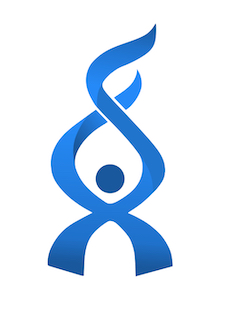Complete Thyroid Test Panel
|
TrueHealthLabs.com has created the Complete Thyroid Test Panel to give you deeper insights into the complexity of your thyroid health. Since everyone’s thyroid health is different, this comprehensive panel helps provide information to help you and your practitioner develop a customized treatment plan that works specifically for you. We understand the frustration when it comes to the standard healthcare system not fully testing your thyroid. Our Complete Thyroid Test Panel reveals imbalances that are otherwise not tested in routine lab tests and help better identify the root cause of thyroid dysfunction.
|
What’s being tested in this thyroid test panel:
- TSH
- Total T4
- Total T3
- Free T4
- Free T3
- Reverse T3 (rT3)
- T3U
- Free T4 Index
- TPO and Anti-TG Antibodies (Hashimoto’s Screen, thyroid antibodies)
Who should be tested?
You should be tested if you have any thyroid concerns at all, especially if your doctor only ran the TSH test and said, “Everything’s okay”.
If you are experiencing any of the below symptoms, we recommend that you take the Complete Thyroid Test Panel:
- Weight gain or loss
- Fatigue
- Depression
- Insomnia
- Morning headaches that wear off as the day progresses
- Thinning of the outer third of your eyebrows
- Thinning of hair or hair loss
- Mental sluggishness
What do I do once I receive my results?
We highly recommend that you take any results you receive from TrueHealthLabs.com to your treating physician; however, we do provide a consultation service to discuss your results to help you better understand them in order for you to have a more productive discussion with your treating physician. Learn more about our One-on-One Results Review service.
Detailed Explanation of Complete Thyroid Test Panel
TPO and Anti-TG Antibodies, Hashimoto’s Screen:
Hashimoto’s hypothyroidism is affecting people from all age groups at an alarming rate. As the immune system attacks the thyroid gland over time, you may develop low thyroid symptoms such as weight gain, fatigue, hair loss, constipation, slow metabolism, swelling, increased sensitivity to colds, and depression.
Even though Hashimoto’s disease constitutes over 80% of all hypothyroid cases, it is rarely tested. In many cases, these antibodies are elevated for many years before changes in T4 or TSH happen. Sadly the standard of care in our current healthcare system is to only test for TSH and T4, thus missing critical opportunities for early intervention.
Symptom fluctuation, a medicine cabinet full of medication and supplements, and doctors not being able to correctly diagnose you are signs that you may have an autoimmune condition.
There is a close familial link to Hashimoto’s hypothyroidism, so it is recommended that all family members be screened.
TSH Testing: Thyroid Stimulating Hormone (TSH) is released from the pituitary gland that tells your thyroid to produce more thyroid hormones. The higher the TSH, the more hormones the pituitary gland asks the thyroid to make. When there are excess thyroid hormones, TSH will go down.TSH is typically run when one is experiencing low thyroid symptoms such as weight gain, fatigue, depression, or hyperthyroid-type symptoms like weight loss, increased heart rate, and insomnia. In standard medicine, TSH is used to monitor replacement hormone treatment. That being said, TSH does not tell the whole story nor give insights into why thyroid dysfunction is happening. Total T4 and Free T4 Testing:
Total T4 is the combination of the hormones the thyroid gland makes, (T4 bound to transport proteins-inactive) and free T4 (T4 removed from its transport proteins-active). As T4 enters the liver, it’s converted into T3, your active thyroid hormone.
Total T3 and Free T3 Tests:
T3 (or triiodothyronine) is the active form of thyroid hormone. T3 is the hormone that ultimately runs the metabolism of each cell of the body. Knowing both T4 and T3 levels helps to better understand how well your liver is converting T4 into T3. This conversion is also highly selenium-dependent and can be adversely affected by psychological stress, increased cortisol, liver issues, and anemia.
Reverse T3 Test:
In times of stress (elevated cortisol), inflammation, and hormonal imbalances ( postmenopause | premenopause | males ) may cause the body to conserve energy. Since the thyroid hormone acts like our internal thermostat, thyroid hormones may be suppressed in times of stress. One way this is done is by converting the thyroid hormone T4 into an inactive form of the active T3 hormone called reverse T3. This not only lowers the amount of available active T3 but also “plugs up” the spots on the cells where T3 would normally enter, which can lead to hypothyroid-type symptoms. Thyroid Hormone Binding Globulin (TBG add-on): As the thyroid gland makes hormones, it attaches them to transport proteins to keep them safe as they travel to the liver for conversion.
Hormonal imbalances ( postmenopause | premenopause | males ) can adversely affect levels of TBG, binding up thyroid hormones and creating hypothyroid-type states. A typical sign that you may have a TBG elevation is that your doctor has put you on thyroid replacement hormone and it “doesn’t work”.
Medical Review Board
Reviewed by Jeff Donohue M.D. from Body Logic and Brady Hurst DC, CCCN. Written by True Health Lab’s team of editorial health contributors.
Disclaimer: This information is for educational purposes only and not intended as medical advice. Consult your healthcare provider for personalized guidance.
Why Customers Trust True Health Labs – What People are saying
Also rated 4.6 out of 5 based on 3452 ShopperApproved reviews- See all TrueHealthLabs.com reviews.





